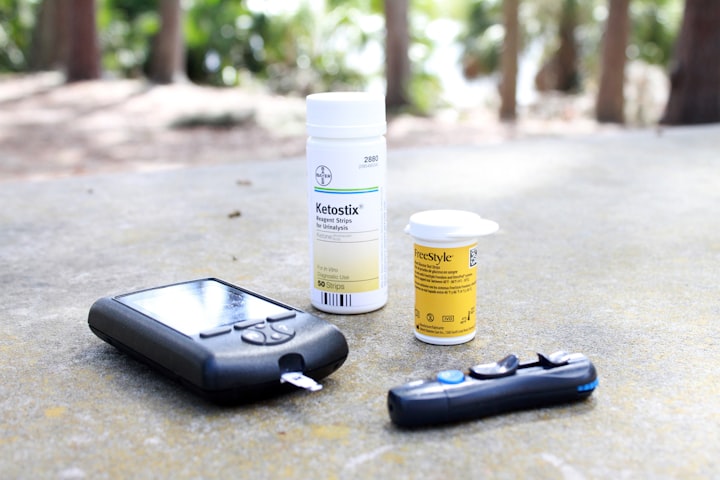
Living with diabetes requires careful management and lifestyle adjustments. This article provides valuable tips and guidance for individuals dealing with diabetes, empowering them to take control of their health and well-being. By implementing these health tips, diabetic patients can lead fulfilling lives while effectively managing their condition.
Understanding Diabetes
What is Diabetes? Diabetes is a chronic condition that affects the body’s ability to regulate blood sugar levels. It occurs when the pancreas does not produce enough insulin (Type 1 diabetes) or when the body cannot effectively utilize insulin (Type 2 diabetes).
Types of Diabetes There are different types of diabetes, including Type 1, Type 2, and gestational diabetes. Each type requires specific management approaches and lifestyle adjustments.
Importance of Managing Diabetes Proper management of diabetes is crucial to prevent complications such as heart disease, kidney damage, and nerve damage. It involves maintaining healthy blood sugar levels, managing weight, and adopting a balanced lifestyle.
Healthy Eating Habits for Diabetic Patients
Balanced Diet for Diabetic Patients A balanced diet for diabetic patients focuses on consuming a variety of nutrient-rich foods, including whole grains, lean proteins, fruits, vegetables, and healthy fats. Incorporating fiber-rich foods helps regulate blood sugar levels and aids in maintaining a healthy weight.
Importance of Portion Control Controlling portion sizes is essential for diabetic patients to manage their blood sugar levels effectively. Measuring food portions, using smaller plates, and being mindful of calorie intake can prevent overeating and assist in weight management.
Foods to Avoid for Diabetic Patients Certain foods can cause spikes in blood sugar levels and should be avoided or consumed in moderation. These include sugary beverages, processed snacks, high-fat foods, and foods with a high glycemic index. Opting for healthier alternatives can help maintain stable blood sugar levels.
The Benefits of Regular Meal Timing Establishing a regular eating schedule is beneficial for diabetic patients. Eating meals and snacks at consistent times throughout the day helps regulate blood sugar levels and prevents extreme fluctuations. It also aids in maintaining energy levels and supports overall well-being.
Regular Physical Activity
Importance of Exercise for Diabetic Patients Engaging in regular physical activity offers numerous benefits for diabetic patients. Exercise helps lower blood sugar levels, improves insulin sensitivity, promotes weight loss, and enhances cardiovascular health. It is crucial to choose exercises suitable for individual fitness levels and medical conditions.
Types of Exercises Suitable for Diabetic Patients Diabetic patients should incorporate a combination of aerobic exercises, such as walking, cycling, or swimming, and strength training exercises to improve muscle strength and overall fitness. It is advisable to consult with a healthcare professional before starting an exercise regimen.
Precautions to Take During Exercise When exercising with diabetes, it is essential to take certain precautions. Monitoring blood sugar levels before, during, and after exercise is crucial. Staying hydrated, wearing appropriate footwear, and being aware of potential hypoglycemia symptoms are also important for a safe and effective workout.
Blood Sugar Monitoring
The Significance of Blood Sugar Monitoring Regular monitoring of blood sugar levels is a fundamental aspect of diabetes management. It provides valuable information about how the body is responding to food, medication, and lifestyle choices. Monitoring helps identify patterns, make necessary adjustments, and maintain optimal blood sugar control.
How to Monitor Blood Sugar Levels There are various methods for monitoring blood sugar levels, including fingerstick testing, continuous glucose monitoring systems, and flash glucose monitoring systems. Diabetic patients should work with their healthcare team to determine the most appropriate monitoring method for their specific needs.
Interpreting Blood Sugar Readings Understanding blood sugar readings is crucial for diabetic patients to make informed decisions about their health. Target ranges for blood sugar levels may vary depending on individual factors and treatment plans. Regularly reviewing and discussing blood sugar readings with healthcare professionals ensures proper management.
Medication and Insulin Management
Importance of Medication Adherence For diabetic patients prescribed medication or insulin, adhering to the prescribed treatment plan is vital. Medications and insulin help regulate blood sugar levels and prevent complications. Following dosage instructions, keeping track of medications, and communicating with healthcare providers are essential for optimal results.
Understanding Insulin Administration For individuals with Type 1 diabetes or advanced Type 2 diabetes, insulin administration may be necessary. It is important to understand proper injection techniques, storage guidelines, and the significance of insulin timing. Regular consultations with healthcare providers aid in adjusting insulin dosages and ensuring effective management.
Tips for Proper Medication and Insulin Management Managing medication and insulin requires organization and attention to detail. Establishing a routine for medication intake, utilizing reminders or apps, and keeping an updated list of medications and dosages are helpful strategies. Additionally, it is important to store medications properly, follow instructions for refrigeration if necessary, and dispose of expired or unused medications safely.
Stress Management
Impact of Stress on Diabetes Stress can affect blood sugar levels in diabetic patients. When stressed, the body releases hormones that can raise blood sugar levels. Chronic stress can make diabetes management more challenging and increase the risk of complications. Finding effective stress management techniques is crucial.
Stress-Reducing Techniques for Diabetic Patients Implementing stress-reducing techniques can positively impact both mental and physical health for diabetic patients. Practices such as deep breathing exercises, mindfulness meditation, regular physical activity, engaging in hobbies, and seeking social support can help manage stress levels and promote overall well-being.

Regular Check-ups and Specialist Visits
Importance of Regular Check-ups Regular check-ups with healthcare professionals are essential for diabetic patients. These appointments allow for monitoring of blood sugar levels, evaluation of treatment effectiveness, detection of any complications, and adjustments to the management plan if needed. Routine check-ups help ensure optimal diabetes control.
Collaborating with Healthcare Professionals Diabetic patients should actively engage in open and honest communication with their healthcare team. This includes sharing concerns, asking questions, and seeking guidance regarding medication, lifestyle modifications, and overall diabetes management. Collaborating with healthcare professionals creates a partnership for effective diabetes care.

Foot Care and Diabetes
The Importance of Foot Care for Diabetic Patients Diabetes can lead to nerve damage and poor blood circulation, increasing the risk of foot problems. Proper foot care is crucial to prevent complications such as foot ulcers or infections. Regular inspection, proper hygiene, wearing comfortable and well-fitting shoes, and seeking prompt medical attention for any foot issues are essential.
Tips for Proper Foot Care Diabetic patients should prioritize foot care by following these tips: inspect feet daily for any cuts, blisters, or sores; keep feet clean and dry; moisturize feet regularly while avoiding applying lotion between the toes; trim toenails carefully; wear comfortable shoes that provide support and protection; and avoid walking barefoot.
Sleep and Diabetes
The Connection Between Sleep and Diabetes Adequate sleep is important for overall health, and it plays a role in diabetes management as well. Poor sleep quality and duration can affect blood sugar control, insulin sensitivity, and appetite regulation. Establishing healthy sleep habits is beneficial for diabetic patients.
Tips for Improving Sleep Quality To improve sleep quality, diabetic patients can follow these tips: establish a consistent sleep schedule; create a relaxing bedtime routine; create a comfortable sleep environment; limit exposure to electronic devices before bed; avoid caffeine and heavy meals close to bedtime; and engage in relaxation techniques, such as reading or gentle stretching, before sleep.
Managing Sick Days with Diabetes
Special Considerations for Diabetic Patients during Illness When diabetic patients are sick, it can impact blood sugar control and overall well-being. It is important to monitor blood sugar levels more frequently, stay hydrated, continue taking medication or insulin as prescribed, adjust carbohydrate intake as needed, and seek medical guidance if blood sugar levels are consistently high or low.
Traveling with Diabetes
Preparing for Travel as a Diabetic Patient Traveling requires extra planning for diabetic patients to ensure proper diabetes management during the trip. It is important to pack enough medication, supplies, and snacks; carry a doctor’s note and prescriptions; be aware of time zone changes and adjust medication schedules accordingly; and have a plan for emergency medical care






Comments
There are no comments for this story
Be the first to respond and start the conversation.